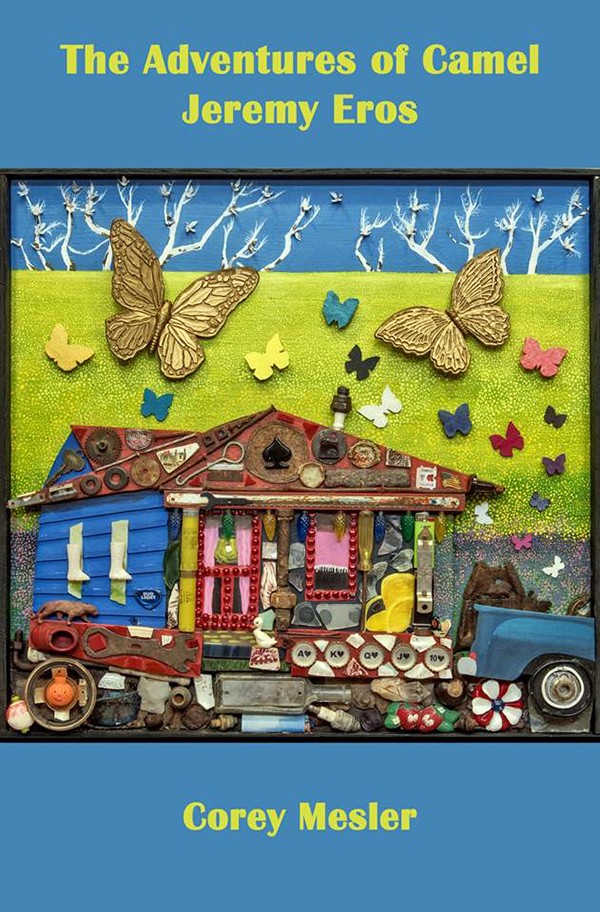“Welcome to the new America. How can I help you?” asks Corey Mesler when I call him to talk about his newest novel, The Adventures of Camel Jeremy Eros. The poet, author, and owner, with his wife, Cheryl, of Burke’s Book Store, is nothing if not prolific — it seems as though we were just speaking about Camel’s Bastard Son. Clearing up the Camel timeline — which ended up being more complex than this book reviewer originally realized — was just one of the things we discussed. As always, Mesler is charming and poetic — but that’s what I’ve come to expect.
 Courtesy Corey Mesler
Courtesy Corey Mesler
Corey Mesler
Memphis Flyer: Did you write this recently? It feels like Camel’s Bastard Son just came out.
Corey Mesler: In the small press world, what happens is there are different lag times between acceptance and publication. Some presses move really slowly, some presses move fast. This book I’d written long before Camel’s Bastard Son. This was supposed to come out before that in my perfect plan.
Are they related? Is it the same Camel?
Yes, it is, but Camel doesn’t actually appear in Camel’s Bastard Son as a corporeal being. It’s funny, at Christmas, a customer who — for some reason — is enamoured of my books gave as Christmas presents what he called “the Camel quartet.” I couldn’t be more flattered.
It makes me think of Patricia Highsmith’s Ripliad.
Yeah, or John Updike’s Rabbit books.

What are the other books in the quartet?
Camel first appears in We are Billion Year–Old Carbon, which is my Memphis hippie novel. I liked him so much, I put him in Memphis Movie, which takes place at a much later time. So I made him an old man who is a retired poet living in Midtown Memphis who gardens and doesn’t really write anymore.
When we talked about Camel’s Bastard Son, we spoke about contemporary politics and discourse. Are there similar influences here, or is this book focused on Camel?
It takes place more in the ’60s and ’70s. I was 14 years old in 1969, and I wanted so bad to be a hippie. I wanted to be at Woodstock, but I was 14. As a writer, I thought, I can go back and revisit that through Camel. That’s what this book is. It has some of the youthful joy, I hope, of being a young poet, going to San Francisco, that sort of thing.
You didn’t get to go, but did it feel good to send Camel?
Well, the chapter about Woodstock, you have to read it. Camel’s too stoned to get there.
Do you have plans to do a booksigning at Burke’s at some point — kind of a “make up” signing?
This book, I feel, was sort of lost in the pandemic. I hate to even say this — I have a novel coming out in March, and then I have an 800-page novel coming out in the summer, from two different presses.
Wait, what? When do you write these?
I know. It’s absurd. I don’t even think of myself as any more prolific or energetic. I’m not; I’m kind of a lazy writer.
Will these books feature science-fiction elements, like Camel’s Bastard Son?
Yeah, it’s in most of my books. A flattering way to describe it is magical realism, but I think of it more like I watched too much Twilight Zone as a kid.

